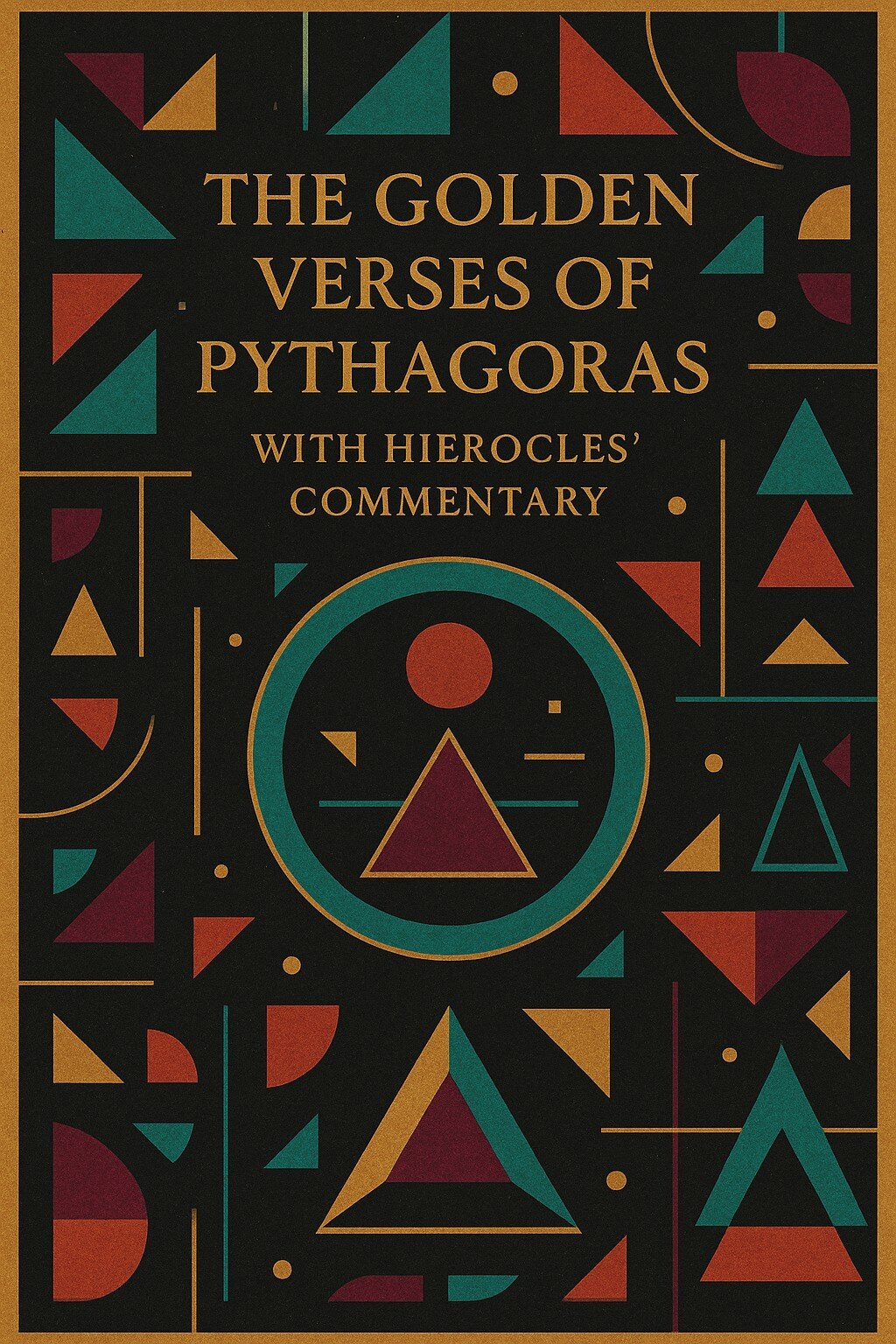The Golden Verses of Pythagoras is a compact anthology of moral precepts attributed to the ancient philosopher Pythagoras (c. 570–495 BCE). The verses, likely composed by his followers rather than the master himself, present a set of guiding principles on how to live a virtuous and balanced life. They cover themes such as moderation, self-control, justice, reverence for the gods, respect for parents, care for friends, and the pursuit of wisdom.
What makes this work especially valuable is the inclusion of Hierocles’ commentary, written in the 5th century CE. Hierocles of Alexandria, a Neoplatonist philosopher, provided a systematic explanation of each verse, linking the ancient Pythagorean maxims to broader philosophical traditions of Stoicism and Platonism. His interpretation offers practical advice for applying the verses in daily life while also situating them within metaphysical concerns such as the immortality of the soul and the cosmic order.
The text became widely circulated in the Renaissance and Enlightenment, admired for its universal ethical appeal. Thinkers such as Voltaire, Rousseau, and even modern spiritual writers have found inspiration in its concise wisdom. The verses encourage readers to cultivate discipline, gratitude, compassion, and an awareness of the divine structure of the cosmos.
This public-domain edition presents the English translation of both the verses and Hierocles’ commentary. It remains a foundational source for students of philosophy, spirituality, and history of ideas. Whether read as moral poetry, as practical ethical instruction, or as a window into ancient esoteric traditions, the Golden Verses continue to resonate with readers seeking harmony between self, society, and the universe.
Download below and explore a timeless bridge between ancient wisdom and enduring human questions:
